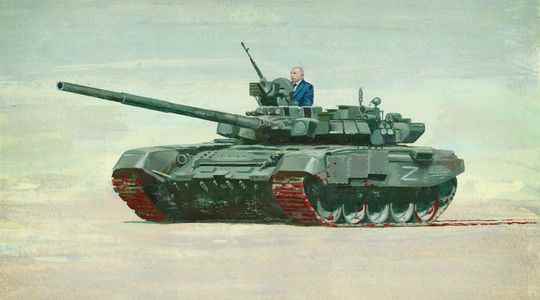Unfortunately, the blows against democracy did not wait for the war in Ukraine. Last year, freedoms declined in 60 countries (and progressed in only 25 states), according to the American NGO Freedom house, which deplores a sixteenth consecutive year of deterioration. In total, 38% of the world’s population lives in unfree countries. “The world order is about to topple, and if democracy advocates do not work together to help ensure freedom for all, the authoritarian model will prevail,” warn the authors in their study published on February 24. , on the first day of the invasion of Ukraine.
At the gates of Europe, our political system is being attacked by missiles and tanks. And if this state falls, others will follow. “Russian President Vladimir Putin is not only waging a war against democracy but, more broadly, against freedom, deciphers historian Françoise Thom. It is not his military security or NATO that worries him. In reality, he considers that everything he does not control threatens his regime – for fear of a democratic contagion – and does not support that Ukrainians and other neighboring countries are free.”
The myth of the strong man is in full swing in France
Western public opinion was impressed by the heroic resistance of the Ukrainians and the courage of their president, Volodymyr Zelensky. Will their brutal aggression by Moscow act as an electric shock? On the eve of the first round of the French presidential election, will it raise awareness of the price of democracy? The question deserves to be asked: according to a study by the Sciences Po Political Research Center, dating from January 2022, 39% of French people questioned say they are in favor, to govern the country, of the advent of a “strong man who would not have to worry about Parliament or the elections” and 27% see positively a takeover by the army…
To those who still doubted it, this war will at least have revealed Putin’s true nature. Again he showed the atrocities of which his regime is capable – such as the despicable murders of hundreds of civilians in Boutcha, near kyiv. And finished transforming his country into a real dictatorship, where any form of protest is no longer tolerated. Even its flatterers, like presidential candidates Marine Le Pen, Jean-Luc Mélenchon and Eric Zemmour, had to backpedal.
The power of democratic power
The stalemate of the Russian army in Ukraine also proves the limits of the authoritarianism of Putin, who has deprived himself of checks and balances. For fear of displeasing him, his intelligence services did not provide him with reliable information, and he overestimated his strengths while underestimating the reaction of Ukrainians and Westerners.
For his part, Volodymyr Zelensky aroused an unexpected momentum within his population, ready to give his life, by touching their hearts. “The President of Ukraine reminds us how powerful democratic power can be. He was able to show courage, wisdom and symbolically embody his nation. Unlike Putin, Zelensky does not claim to be of a superior essence; his strength does not It’s not to have been chosen by fate, but by his fellow citizens,” said Michael Blake, professor of philosophy and public policy at the University of Washington.
For the time being, Europe has shown itself united against Putin, deciding on sanctions in record time, even if it is struggling to agree on reduce imports of Russian hydrocarbons. Still, freedoms still have to be worried on the Old Continent: Hungarian Prime Minister Viktor Orban, champion of “illiberal” democracy and who remained close to Vladimir Putin, has just been largely re-elected on March 3.
Despite the Ukrainian tragedy, our country has obviously not realized the privilege of being able to vote: the polls anticipate a record abstention rate for a presidential election (30%). The vast majority of French people are attached to democracy, but many say they are frustrated by its lack of effectiveness. However, if this system has limits, it is also the only one capable of correcting its errors and regenerating itself. To meditate for those who hesitate to vote on April 10.
